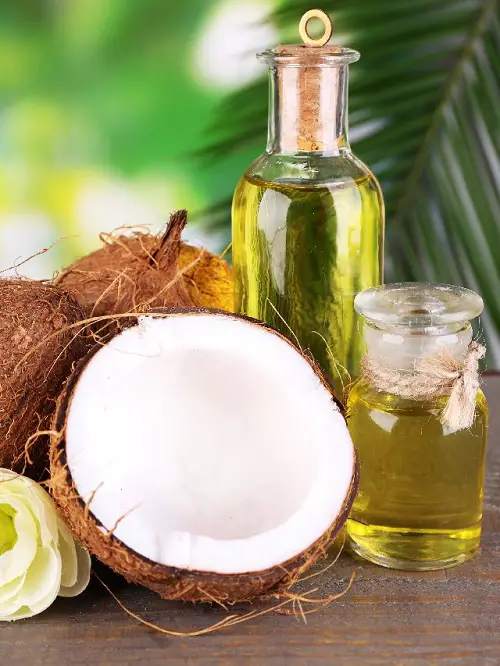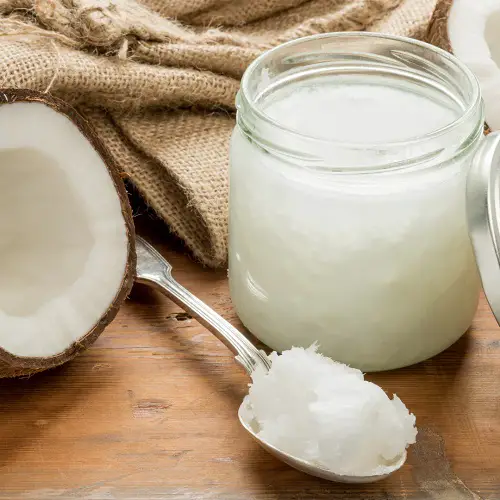Does using coconut oil as lube cause UTI, or is it safe for intimate moments? Let’s learn the science behind it!
Coconut oil is a natural lubricant that many people love as a sustainable alternative. But does it increase the risks of UTI?
What Is UTI?
A urinary tract infection (UTI) is a common issue that can affect any part of the urinary system, including the kidneys, ureters, bladder, and urethra. UTIs happen when bacteria, typically from the skin or rectum, enter the urethra and start multiplying in the urinary tract. This can lead to inflammation, pain, and other symptoms, which vary based on where the infection is located and how severe it is.
Symptoms Of UTI
The most common type of UTI is a bladder infection (cystitis), which affects the lower urinary tract. The symptoms of a bladder infection may include:
- A strong urge to urinate that doesn’t go away
- A burning feeling when urinating
- Urinating often and passing small amounts of urine
- Urine that looks cloudy smells bad, or has blood in it
- Pelvic pain or pressure
- Fever, chills, nausea, or vomiting (in severe cases)
Another type of UTI is a kidney infection (pyelonephritis) affecting the upper urinary tract. The symptoms of a kidney infection may include:
- Back or side pain
- High fever
- Shaking and chills
- Nausea and vomiting
- Confusion or mental changes (in severe cases)
A healthcare provider can diagnose a UTI by looking at your symptoms, reviewing your medical history, and doing a urine test. The urine test checks for bacteria and other signs of infection, like white blood cells or nitrites. Sometimes, a urine culture is done to pinpoint the exact type of bacteria causing the infection and to find the most effective antibiotic for treatment.
Does Coconut Oil As Lube Cause UTI?
Using coconut oil as a lubricant can be controversial due to mixed reports on its safety. Coconut oil has a pH of about 5-6, while the vaginal pH is typically between 3.8 and 4.5. Introducing a lubricant with a higher pH, like coconut oil, might disrupt the natural vaginal environment and potentially lead to imbalances.
This disturbance could kill the beneficial bacteria in the vagina, making it easier for harmful bacteria to grow, which may increase the risk of urinary tract infections (UTIs).
While some people find coconut oil to be a safe and effective natural lubricant due to its moisturizing properties and potential antibacterial effects, it’s important to remember that not all experiences are the same.
Types Of Coconut Oil
Coconut oil has gained significant popularity in the wellness industry due to its versatile benefits. This oil is not limited to culinary uses; it serves as a multi-purpose solution for various needs. Here are some types of coconut oil:
1. Refined Coconut Oil
Refined coconut oil, also known as RBD oil (refined, bleached, and deodorised), emerges from dried coconut meat, or ‘copra.’ Sadly, refined coconut oil loses its coconutty charm, making it ideal for deep-frying. It’s a big no for using it for lube purposes.
2. Unrefined Coconut Oil
Unrefined coconut oil, also known as virgin coconut oil, is processed without heat, bleach, chemicals, or additives. This method ensures the oil retains its natural properties and purity. If you consider using coconut oil as a lube, then it can be the safest option.
Downsides Of Using Coconut Oil As Lube
- Coconut oil can weaken latex, increasing the risk of condom breakage and reducing effectiveness against STIs and pregnancy.
- Some individuals may experience irritation or allergies when using coconut oil in the genital area. A patch test is recommended before full use.
- oconut oil can disrupt the natural pH balance of the vagina, potentially leading to yeast infections or bacterial vaginosis in women.
- Coconut oil can stain fabrics and is not easily washed off from the skin, leading to additional cleanup effort.
- The thickness of coconut oil might not be comfortable for everyone, making personal preference a significant factor in choosing a lubricant.
Always consider consulting a healthcare provider for personalized advice and safe practices.
How To Prevent UTI?
- After using the loo, always wipe from front to back. This minimizes the risk of transferring E. coli bacteria from the rectum to the urethra. Especially crucial during diarrhea episodes!
- Staying hydrated is like giving your urinary tract a high-five. Aim for 6 to 8 glasses of water per day. Herbal teas, milk, or sparkling water work too. Avoid caffeine and alcohol—they irritate your bladder.
- Holding in your pee is like sending an invitation to bacteria in your urinary tract. Urinate promptly and don’t wait more than 3 to 4 hours.
- Urinating before sex is like hitting the reset button for your urinary tract. Urinating after sex helps flush out any intruders that might’ve sneaked in the intercourse.
A Quick Review
As a final verdict, coconut oil is not always the safest option. Using unrefined coconut oil may help up to some extent, but this should not be taken as a permanent solution. However, you must always seek the advice of professionals to get better clarity. You can also explore the other options for the role of safe lubricant.





